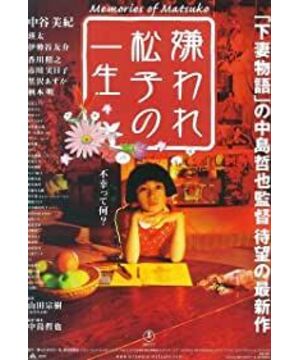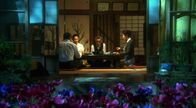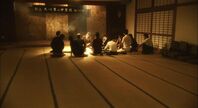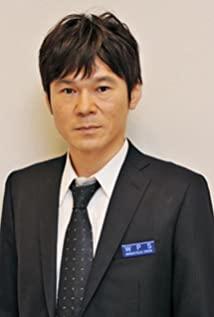Pine nuts' skills are singing and haircutting. The skill of pine nuts is to sing on the verge of death, and to repeatedly deform. She died and was born again and again between new coincidences.
Matsuko lives as it is and is full of meaning. Her life turned out to be practical and unbearable to be a work. But her suffering and loneliness are also inscribed in this meaning.
-
She stared at Arakawa. She is an Arakawa. Lonely, unnoticed, but irrigating all those who meet by chance, without exclusion, without selection, without limit, without end. She is not a boat drifting in the river and sea (with flow direction and modality), she is a river. She wasn't drawn into the vortex, she herself made the vortex.
The color of the film is splendid and contrasting, with the effect of overexposure and tone shifting, symbolizing Matsuko's over-emotional vision, the various contradictions between her vision and reality, which make her annoying.
Pine nuts' skills are singing and haircutting. After both my father and my first love died, she said, my life is over, but after half a year, I started to sing. She fell in love again, still obsessed and devoted, as if she had never loved and never felt pain. She wanted to die for her deceased lover in the water. A passing barber picked her up and cut her hair short. For a time, she stared at her new self in the mirror, where she settled herself contentedly. Later, she learned to cut hair.
The skill of pine nuts is to sing on the verge of death, and to repeatedly deform. She died and was born again and again between new coincidences.
She has never chosen, rejected, or given meaning on her own.
She suffered endless repeated injuries, allowed herself to gradually decay, let herself become obsolete, and then faced the end involuntarily, giving up involuntarily each time. She died and was born again and again between new coincidences. When it dies, it literally rots away, and when it is reborn, it abandons all history and possessions and devotes itself to the new. She threw everything away and devoted herself entirely to the new. Matsuko's life has no destination or purpose, but she lives immeasurably and generously, allowing her lover to take whatever they want.
Only twice did her face get a radiance. On one occasion, the young male teacher wooed anxiously; on another occasion, the barber made an earnest proposal. On one occasion, she found that she was plainly loved by men; on another occasion, she saw that she had a new and beautiful face in the eyes of others. Miracles shined, but they didn't light up her life ever since. But it was only at this moment that she got the light, and her eyes were the light that ran through the dark life and was overexposed.
Her life was meaningless in the eyes of others; however, she really only clings to her life's meaning and does not live for anything else.
She is not for herself, she has no self, she does not have the same narrative, she has no history and lessons, but she has experienced suffering and rejection again and again, and finally understands who she is.
Only twice did she see her own meaning and power. Once, she was exercising herself in prison for no reason, she thought, it was love, and love made her willing to give birth. Once, she was dragged down by her lover, but she said: I would like to live even in hell, this is my happiness. Not for pleasure, not for contentment, but for acknowledging what she is, and what she is, she is over-exerted to others.
In the end, she was so tired that she gave up meaning and simply lived.
She wrote "I'm sorry for being human", she finally remembered the last words of her first love before committing suicide, and realized that life will not be equal to your beliefs and sacrifices, and even the tenacious vitality and long-distance experience still cannot make you Beyond what she is and her limits, she trapped herself, with nowhere to escape, nowhere to turn. She may have come to understand a little, others are right, she is a disgusting pine nut, and she has endured it. But she didn't kill herself, and that was the first time she stopped asking at the end: why?
She died several times, and she lived several times. However, only once did she refuse to be called by her name. And that was when she ate and drank excessively, closed her relationship with others, and abandoned herself and life. She was dressed like a clump of flowers. She lived the most lifeless and meaningless life when she lived for herself.
She has no ego, no common goals or motives, she has changed several life styles and her own appearance, but she has always had only one name. She does not respond to her name being called only when she is closed off to eat and drink for herself.
(After spending her life inexorably on her lover, in the end, apart from staring at Arakawa, she stayed at home. It was like a narrow well was built deep in the spring, and the fatness of the pine nuts when she died gave me an idea: this body has passed away. A healthy woman did not die in any despair, but drowned in her self-sufficiency. - Supplemented on 2013/11/20)
Unlike the sick and favored sister, she was too healthy, she could not die, But never really got pampered.
Once, she killed her lover and immediately jumped off the building, but at that moment her body stubbornly survived. She is a woman who has no ego but cannot give up her body. Her body is very healthy, but she has always been lacking in love. Her spirit suffers, her body regenerates, feeding her will and soul. She is a fertile and ownerless barren river.
Songzi can't love without others, but also love alone. Because that private, overexposed light only illuminates her own mental journey. Her love is not "for" people, but "delivering and supplying" people. She gives her own strength and abundance, gifts and burdens. The value of this non-two-way love is also enjoyed by her alone. Before her lover abandoned her, she said: just because your body is too beautiful. I am sorry.
The only people who understand Matsuko's love are her students, who later become lovers. He described her as accommodating her own good and bad, supporting him, living and dying with him, waiting for him, indefinitely, without observing any signs, without any guarantees and promises. Forgive your enemies and love. That's what pine nuts did to him. Matsuko is like a god, and when he realizes this, he flees her in fear: he has turned his back on his god. For him, his god lived willingly in hell.
The love of pine nuts is not possession, but overfeeding. No man can bear Matsuko's love enough, she entrusts her own historical text, and then lives wholeheartedly only for her lover, that kind of love is too strange and too large, her love makes the lover enjoy a double body, and no one has the strength to need it Such a big body.
Matsuko lives as it is and is full of meaning. Her life turned out to be practical and unbearable to be a work. But her suffering and loneliness are also inscribed in this meaning.
View more about Kiraware Matsuko no isshô reviews










